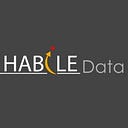What are some common challenges in data collection?
Data collection is paramount in today’s rapidly evolving world, serving as the foundation of evidence-based decision-making across multiple domains, from business analytics to scientific research. While it plays a pivotal role in shaping our understanding of complex phenomena, data collection is riddled with challenges. This article delves deep into these intricacies, shedding light on the maze of hurdles faced by professionals and researchers alike. Partnering with a reliable data collection company can be a game-changer in navigating these challenges.
Navigating the Complex Challenges of Data Collection
Challenge #1: Sampling Issues
Sampling, a cornerstone of many research methodologies, refers to selecting a subset of a population for study. However, the road is rife with potential pitfalls:
- Bias: It’s the elephant in the room. Every researcher aims for a sample that mirrors the larger population, but even minute deviations can skew outcomes. For example, if a tech survey inadvertently targets more tech-savvy individuals, its findings might paint an overly optimistic picture of general tech proficiency.
- Inadequate Sample Size: Size does matter in research. Too few participants and you risk statistical insignificance; too many, and you’re burning through resources without reaping proportional benefits. Determining the optimal size requires a careful balancing act, considering both the scope of the study and available resources.
Challenge #2: Data Accuracy and Reliability
In the realm of data, accuracy and reliability reign supreme:
- Measurement Errors: Whether it’s a miscalibrated instrument in a lab or an interviewer misrecording responses, small mistakes can lead to major inaccuracies. Regular calibration and training can mitigate such errors.
- Inconsistency in Collection: Imagine two researchers observing the same event but noting down slightly different details. Such inconsistencies, though seemingly minor, can cascade into significant data discrepancies.
- Recall Bias: Particularly pertinent in retrospective studies, this refers to participants’ sometimes flawed memory of past events. Such biases can distort historical data, necessitating the use of prompts or alternative data sources.
Challenge #3: Data Integrity
Without integrity, data loses its essence:
- Missing Data: Incomplete datasets can be the bane of analysis. From survey dropouts to malfunctioning sensors, myriad reasons can lead to gaps in data. Such voids often require advanced statistical methods to handle, such as imputation techniques.
- Duplicate Entries: Redundancies in data sets, whether due to software glitches or human oversight, can overemphasize certain data points, distorting results.
- Outliers: These are the anomalies, data points that stray significantly from the norm. While sometimes they represent genuine phenomena, they can also be erroneous, skewing averages and other metrics.
Challenge #4: Ethical Considerations
In an interconnected digital world, ethical considerations are more pressing than ever:
- Privacy Concerns: As data breaches become increasingly commonplace, the sanctity of personal data is under constant threat. Safeguarding this data, especially sensitive information, is not just a technical challenge but a moral obligation.
- Informed Consent: Beyond the legalese of consent forms lies the principle of respect for autonomy. Participants should be fully informed about the study’s purpose, procedures, risks, and benefits.
- Potential Data Misuse: In the wrong hands, data can be weaponized. Ensuring ethical use extends beyond the collection phase, encompassing storage, analysis, and even post-study disposal.
Challenge #5: Practical Challenges
The logistical aspects of data collection present their own set of challenges:
- High Costs: Deploying high-quality instruments, hiring trained personnel, and implementing robust data storage solutions can strain budgets.
- Time-Consuming Processes: Large-scale data endeavors can span months or even years, requiring sustained commitment and often demanding interim reviews and adjustments.
- Geographic or Accessibility Limitations: Remote areas, conflict zones, or restrictive regimes can pose formidable barriers to data collectors.
Challenge #6: Technological Challenges
In our tech-driven age, collecting data brings tech-specific challenges:
· Data Storage Issues: With the advent of Big Data, researchers often grapple with storing vast amounts of information efficiently and cost-effectively. Implementing effective data collection techniques can help in managing these vast datasets.
· Interoperability: Merging data from disparate systems, each with its unique format and structure, can be a herculean task.
· Data Security Concerns: Cybersecurity threats, from hackers to phishing scams, pose persistent challenges, necessitating cutting-edge security measures.
Challenge #7: Methodological Issues
The methodology, the blueprint of any research, isn’t immune to challenges:
- Poor Survey Design: Ambiguous phrasing, leading questions, or even survey length can influence participants’ responses, compromising data quality.
- Observer Effects: At times, the mere act of observation can alter the behavior of subjects, known as the Hawthorne effect in social sciences.
- Mode Effects: The medium of data collection can influence outcomes. For instance, online surveys might attract a younger demographic compared to phone interviews.
Challenge #8: Cultural and Linguistic Barriers
Cross-cultural research magnifies challenges:
- Translation Inaccuracies: Literal translations can miss cultural nuances, leading to misinterpretations.
- Cultural Misunderstandings: Norms vary across cultures. A gesture considered polite in one culture might be offensive in another, impacting data interpretation.
Challenge #9: Changing Environments
Dynamic global landscapes mean that today’s pertinent data might be obsolete tomorrow. Political upheavals, economic downturns, or technological innovations can rapidly shift paradigms, affecting the relevance and context of data.
Challenge #10: Dependence on Third Parties
Outsourcing or relying on third-party data sources can introduce uncertainties, from authenticity concerns to timing discrepancies. Establishing reliable partnerships and rigorous data verification processes is crucial.
Conclusion
The labyrinth of data collection is complex, but navigating it is essential for sound research and informed decision-making. By understanding and anticipating these challenges, professionals can equip themselves to tackle them head-on, ensuring the sanctity and utility of their data-driven endeavors.
